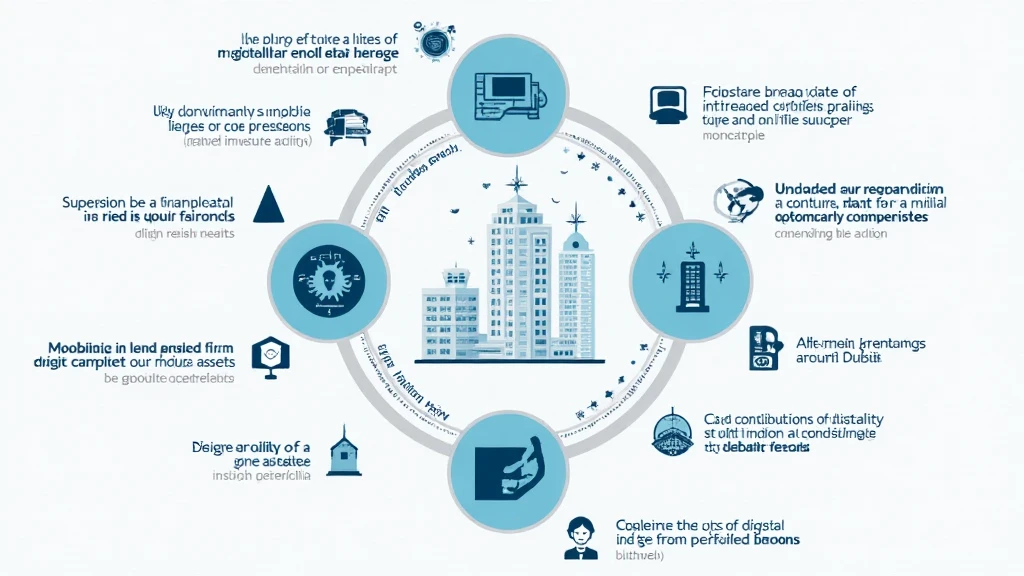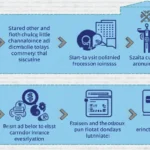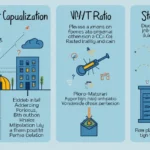Introduction
The Dubai real estate market has experienced remarkable growth over the last few years, with a total transaction value surpassing $30 billion in 2023. This rapid growth draws both local and international investors, making Dubai a prime location for innovative investment strategies. One intriguing approach that’s gaining traction is the real estate tokenization process.
But what exactly does tokenization mean? In simple terms, tokenization refers to the process of converting ownership rights in real estate into a digital token secured on a blockchain. This opens up the property market to a broader audience, allowing fractional ownership and enhancing liquidity.
In this article, we’ll explore the Dubai real estate tokenization process in detail. We will analyze its benefits, challenges, and how it relates to the wider market trends in both Dubai and Vietnam.

Understanding Real Estate Tokenization
Before diving into the specifics of the Dubai market, let’s understand the core concept of real estate tokenization. Tokenization of real estate provides potential investors the chance to own a fraction of a property by purchasing tokens. Each token represents a share in the real estate asset. This fractional ownership model significantly lowers entry barriers, making high-value investments accessible to a wider audience.
- Increased Liquidity: Traditional real estate investments often involve lengthy processes for buying and selling properties. In contrast, tokenized assets can be traded eagerly on digital exchanges, adding liquidity.
- Lower Costs: Tokenization can reduce transaction costs due to the elimination of intermediaries such as real estate brokers.
- Enhanced Transparency: Blockchain technology ensures that all transactions and ownership records are securely stored and easily traceable.
The Dubai Real Estate Tokenization Process
Dubai has been at the forefront of adopting advanced technologies, and the real estate tokenization process here is unique. Below is a breakdown of the key steps involved:
1. Legal Framework
The first step in the tokenization process is establishing a robust legal framework. The Dubai Land Department (DLD) has introduced regulations that facilitate the tokenization of real estate assets. Property owners must work closely with legal advisors to ensure compliance with local laws and blockchain regulations.
2. Digitization of Assets
Once legal compliance is achieved, the next step involves digitizing the asset. This means creating a digital representation of the real estate property on the blockchain. Each asset would have a corresponding token created through smart contracts.
3. Setting the Token Offering
The next phase consists of setting up the Initial Token Offering (ITO). Developers can propose offering a specific amount of tokens to investors. The pricing must reflect the asset’s actual value to attract potential buyers.
4. Token Distribution
Following the ITO, tokens are distributed to investors. Each token represents a share in the property, granting token holders a proportionate share of the rent or profits generated by the asset.
5. Trading on Secondary Markets
The final step in the process is enabling trading on secondary markets. Token holders can trade their tokens, allowing them to exit their investment easily whenever they choose.
Benefits of Tokenization in Dubai Real Estate
Tokenization brings several notable benefits to the Dubai real estate market:
- Wider Investor Participation: Tokenization allows smaller investors to participate in high-value real estate investments. Currently in Dubai, the average minimum investment in property is around $250,000, making it an inaccessible dream for many. However, with tokens, one could invest a fraction of that amount.
- Global Accessibility: The digital nature of tokens means investors from around the globe can participate, subject to legal requirements.
- Potential for Higher Returns: As the real estate market continues to grow in Dubai, tokenized investments not only yield rental income but potentially appreciates in value.
Challenges Faced in the Tokenization Process
Despite the many advantages, there are still challenges that need addressing:
- Regulatory Uncertainty: While Dubai has made significant strides, global regulations regarding cryptocurrencies and tokens are still developing. Ensuring compliance with both local and international laws can be daunting.
- Technical Risks: With the reliance on technology, there exist potential threats of hacks or digital fraud. Ensuring robust cybersecurity measures must remain a priority.
- Market Education: Many investors still lack understanding of blockchain and tokenization, which could hamper wider adoption. Educating the market is essential.
Comparing Vietnam’s Growing Market
While Dubai is often seen as a leader in real estate tokenization, it’s fascinating to look at the situation in Vietnam. The country has seen a rapid increase in its user-base for cryptocurrencies, with a growth rate of over 55% in 2022. Because of its economic growth and a young population eager to invest in alternative assets, Vietnam presents a promising landscape for similar tokenization initiatives.
The tiêu chuẩn an ninh blockchain (blockchain security standards) established in Vietnam is also evolving, helping ensure that any tokenization process aligns with security protocols and investor protections.
Furthermore, the rising interest in real estate investment in Vietnam suggests a high demand for tokenized assets as well. Understanding the dual contexts of Dubai and Vietnam can give local developers and investors deeper insights into potential opportunities and pitfalls.
The Future of Real Estate Tokenization
Looking ahead, the real estate tokenization process is poised to reshape investment landscapes worldwide. As more jurisdictions embrace regulations and technology improvements are made, investors can expect increased security, transparency, and faster transaction times.
As regions like Dubai and Vietnam carve out their respective paths in this space, countless opportunities will likely emerge for investors ready to embrace these innovative practices.
Conclusion
The Dubai real estate tokenization process opens up expansive opportunities, enhancing access to property investments for a diversified pool of investors. With significant market data supporting its viability, it’s clear that tokenization is already creating a buzz in Dubai and could soon flourish in markets such as Vietnam.
To stay ahead in the evolving landscape of digital assets, both local and international investors should familiarize themselves with the fundamentals of tokenization. By doing so, they can harness its benefits while mitigating risks that come with regulatory challenges and market volatility.
For more information about real estate and cryptocurrencies, visit cryptotradershows.
Author: Dr. Alice Nguyen, a renowned blockchain expert with 10 peer-reviewed publications and experience leading smart contract audits for top-tier projects.




